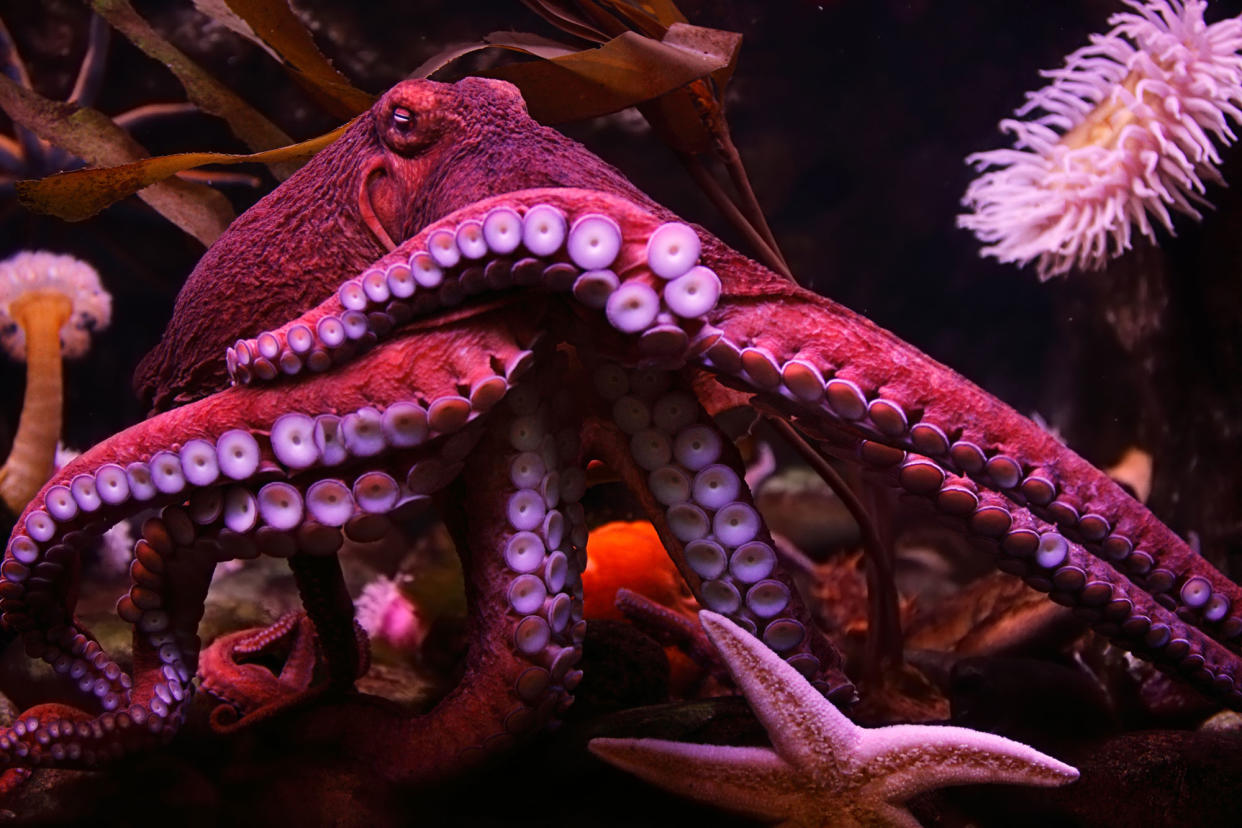If You Give an Octopus Ecstasy, He'll Probably Want a Hug to Go With It, Says Science

What has eight legs, a lot of feelings and might be spotted passing out hugs at a rave? An Octopus on MDMA.
According to the New York Times, a study published Thursday in Current Biology documents the effects the psychoactive drug MDMA (also known as ecstasy or Molly) has on octopuses. Turns out that – similar to its effect on people – the substance makes these sea creatures pretty touchy-feely.
These results were surprising to Gul Dolen, a neuroscientist at Johns Hopkins University who led the study, and other octopus researchers, because octopuses are generally antisocial creatures. But under the effects of MDMA the stand-offish animals wanted to hug and spend time together, as opposed to their usual behavior of trying to fight each other to the death.
Dolen got the idea to test an octopus’s reaction to the drug after studying MDMA for several years, reports NPR.
“My lab has been studying MDMA for a long time and we have worked out a lot of neural mechanisms that enable MDMA to have these really, really profound pro-social effects,” the neuroscientist told NPR.
The sea invertebrates made alluring test subjects because of their recorded antisocial behavior, but also because of how their brains compare to human brains. While octopuses started following a different evolutionary track than humans hundreds of millions of years ago, they still show a great aptitude for learning and problem-solving. Octopuses can open jars, pick the World Cup winners and make escape attempts.
According to NPR, scientists also recently discovered, after sequencing the full genetic code of an octopus, that the “protein that binds the signaling molecule serotonin to brain cells” is almost identical in humans and octopuses.
To see if this protein had the same actions in both humans and octopuses, Dolen and her colleague Eric Edsinge of the Marine Biological Laboratory gave octopuses MDMA by placing the creatures in glass containers filled with seawater infused with MDMA.
Under a heavy dose of the drug (greater than a human would take recreationally), the octopuses acted “freaked out” and would just “stare at everything.” But under the effect of a dose similar to what a human would take, the animals started to become curious and friendly. Instead of avoiding their tankmates, the octopuses got close and started to touch each other in a way that looked like hugging.
It can’t be said for certain if these acts were done through affection as we understand it, but Dolen believes it does show that we may be more similar to seemingly alien creatures than we think, and that some of our social functions that may seem uniquely human could’ve been encoded much farther back than we realized.

 Yahoo News
Yahoo News 
